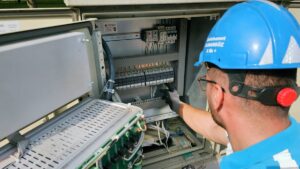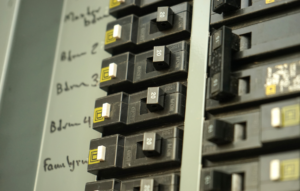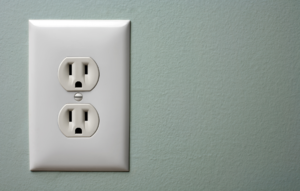Georgia’s infrastructure has experienced significant growth in recent years, spurred by rapid urbanization, economic development, and technological advancements. As cities and industries expand, the demand for reliable electrical services has surged, making professional electricians a crucial component of the state’s infrastructure development. This blog post explores the pivotal role electrical services play in Georgia’s growing infrastructure, highlighting their impact on residential, commercial, and industrial sectors, as well as their contribution to sustainability and modernization efforts.
1. Supporting Urban Growth and Development
Urban areas in Georgia, such as Atlanta, Savannah, and Augusta, have seen a boom in construction and development. With new residential complexes, office buildings, and commercial centers sprouting up, the demand for skilled electrical services has never been higher. Electrical contractors are at the forefront of these projects, ensuring that the power systems supporting these structures are both efficient and safe.
Electrical services play a vital role in various aspects of urban infrastructure:
- New Construction: From wiring newly constructed homes to installing electrical systems in commercial spaces, electricians ensure that all buildings adhere to local codes and meet modern energy standards.
- Renovations and Upgrades: As older buildings in Georgia’s cities undergo renovations, electricians are responsible for upgrading outdated systems to handle higher energy demands, including the installation of energy-efficient lighting and smart systems.
- Public Spaces: Electrical services extend beyond homes and businesses. Electricians are responsible for powering public spaces like parks, libraries, and government buildings, contributing to the overall functionality of urban environments.
The role of electricians in supporting urban growth goes beyond simply installing wires and lighting. They work in close collaboration with architects, engineers, and city planners to design electrical systems that meet the needs of the modern city. In cities like Atlanta, where smart city technologies are becoming increasingly important, electricians are vital in the installation of sensors, automation systems, and energy management tools that optimize urban living.
As Georgia’s urban areas continue to grow, the demand for professional electrical services will remain high. Electricians must stay up to date with the latest advancements in technology to ensure that new developments are both sustainable and capable of supporting future energy needs.
2. Powering Commercial and Industrial Expansion
In addition to urban growth, Georgia’s economy has seen rapid industrial and commercial expansion, particularly in sectors like manufacturing, logistics, and technology. Major companies are choosing Georgia as a base for their operations due to its strategic location, business-friendly policies, and access to key transportation hubs. This influx of businesses has created a robust demand for electrical services.
Here’s how electrical contractors contribute to Georgia’s commercial and industrial sectors:
- Electrical System Design for Manufacturing Facilities: Electrical services are essential in the design and implementation of power systems for factories and industrial complexes. These systems must handle the high electrical loads required by large machinery and production lines.
- Data Centers and Technology Hubs: As Georgia becomes a hub for technology companies, the need for advanced electrical systems in data centers and office spaces has skyrocketed. Electricians must ensure these centers are powered with uninterrupted energy supplies, often implementing redundancy systems and backup generators.
- Energy Management and Efficiency: With rising energy costs, businesses are increasingly seeking energy-efficient solutions. Electrical contractors in Georgia offer services such as energy audits, LED lighting installations, and the integration of smart energy systems that help businesses reduce their power consumption and lower operational costs.
For industrial clients, electrical safety is a top priority. A minor electrical issue in a manufacturing plant could lead to significant downtime or, worse, dangerous accidents. As such, electricians working in these sectors must have specialized knowledge of industrial electrical systems, including how to install, maintain, and troubleshoot large-scale electrical equipment safely.
The continued expansion of Georgia’s industrial and commercial sectors means that electricians will play a central role in shaping the state’s economic future. From ensuring the reliability of power supplies to helping businesses reduce their carbon footprints, the contributions of electrical contractors are essential to maintaining Georgia’s competitive edge.
3. Enhancing Residential Infrastructure and Energy Efficiency
As Georgia’s population grows, so does the demand for residential infrastructure. New housing developments are being built across the state, and many older homes are undergoing renovations to meet modern electrical standards. Electricians are instrumental in these processes, providing services that range from simple installations to comprehensive energy audits and upgrades.
Key areas where electricians support residential infrastructure include:
- Wiring and Electrical Panel Upgrades: Modern homes require far more electricity than older homes, thanks to the increased use of appliances, electronics, and smart devices. Electricians ensure that new constructions and renovated homes have the appropriate wiring and electrical panels to handle these increased loads safely.
- Lighting and Smart Home Systems: Energy-efficient lighting, such as LED bulbs and smart lighting systems, is becoming increasingly popular in residential settings. Electricians help homeowners install these systems, ensuring both energy efficiency and convenience.
- Home Energy Audits: Many Georgia homeowners are looking for ways to reduce their energy consumption and lower their utility bills. Electrical contractors offer energy audits that identify areas where homes can improve efficiency, such as upgrading insulation, installing energy-efficient appliances, or adding solar panels.
Electricians also play a critical role in ensuring the safety of residential properties. Faulty wiring is one of the leading causes of electrical fires, and electricians are trained to identify and rectify potential hazards before they become serious problems. This is particularly important in older homes where outdated wiring or improperly installed electrical systems can pose significant risks.
As Georgia’s residential infrastructure evolves, electricians will continue to be essential in helping homeowners adapt to modern energy needs. Whether it’s installing the latest smart home technology or ensuring a home’s electrical system can handle increased energy consumption, electricians provide the expertise needed to keep homes safe and functional.
4. Promoting Sustainability Through Green Energy Solutions
Sustainability is becoming a top priority for infrastructure development in Georgia. As concerns about climate change and energy efficiency grow, the state has seen an increase in the adoption of green energy solutions such as solar power, electric vehicle (EV) charging stations, and energy-efficient lighting systems.
Electricians are at the forefront of this green energy movement, offering services that help both residential and commercial clients reduce their carbon footprints. Some of the key ways electricians contribute to sustainability in Georgia include:
- Solar Panel Installations: Solar energy is becoming more popular across Georgia, with more homeowners and businesses opting to install solar panels to reduce their reliance on traditional power sources. Electricians are responsible for installing these panels and ensuring they are properly connected to the electrical grid or battery storage systems.
- EV Charging Stations: As electric vehicles gain popularity, electricians are in high demand for installing EV charging stations in homes, businesses, and public spaces. These installations require specialized knowledge to ensure the charging stations are safe, reliable, and compliant with local regulations.
- Energy-Efficient Lighting Systems: One of the simplest ways to reduce energy consumption is by installing energy-efficient lighting. Electricians help homes and businesses switch to LED lighting and install smart lighting systems that can be controlled remotely or set to operate on timers.
By promoting green energy solutions, electricians in Georgia are not only helping to build a more sustainable future but are also positioning themselves as key players in the state’s efforts to combat climate change.
As more Georgians look for ways to reduce their energy consumption and reliance on fossil fuels, electricians will continue to play a crucial role in supporting the transition to clean energy. The demand for these services will only increase as Georgia moves toward a greener and more sustainable future.
5. Supporting Georgia’s Transportation Infrastructure
One of the most critical components of Georgia’s infrastructure is its transportation network. From the bustling Hartsfield-Jackson Atlanta International Airport to the vast network of highways and railroads, the state’s transportation systems require reliable electrical services to operate smoothly.
Electrical contractors are integral to maintaining and improving Georgia’s transportation infrastructure in several ways:
- Traffic Signal Installation and Maintenance: Electricians are responsible for installing and maintaining the traffic signals that regulate the flow of vehicles throughout Georgia’s cities and highways.
- Lighting Systems for Highways and Tunnels: Proper lighting is essential for ensuring the safety of drivers and pedestrians. Electricians install and maintain lighting systems for highways, tunnels, and public transportation hubs.
- Airport Electrical Systems: Airports like Hartsfield-Jackson rely on complex electrical systems to manage everything from runway lights to terminal operations. Electricians play a crucial role in maintaining these systems, ensuring they operate without interruption.
As Georgia continues to invest in its transportation infrastructure, electricians will be key to ensuring that these systems are both safe and efficient. Reliable electrical services are essential for keeping the state’s transportation networks running smoothly, whether it’s powering traffic lights or ensuring the safety of travelers at airports.
The Future of Electrical Services in Georgia’s Expanding Infrastructure
Electrical services play a pivotal role in Georgia’s growing infrastructure, from supporting urban development and industrial expansion to promoting sustainability and maintaining critical transportation systems. As the state continues to develop, the demand for skilled electricians will only increase, making them essential to Georgia’s future growth.
Whether it’s installing cutting-edge technology in smart cities, upgrading electrical systems in new homes, or ensuring the efficiency of industrial power systems, electricians are at the heart of Georgia’s infrastructure development. For businesses and homeowners alike, partnering with experienced electrical contractors like CMS Maintenance Service is the key to ensuring safety, efficiency, and sustainability in all aspects of electrical work.









